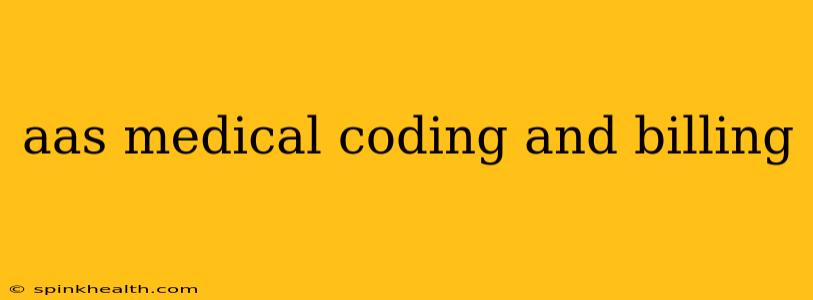The world of healthcare is vast and intricate, demanding a skilled workforce behind the scenes to keep everything running smoothly. One crucial, yet often unseen, role is that of the medical coder and biller. This is particularly true in the specialized field of A&AS (Ambulatory Anesthesia Services), where precise coding and billing are paramount for accurate reimbursement. Let's embark on a journey to uncover the intricacies of A&AS medical coding and billing, exploring its challenges and rewards.
What is A&AS Medical Coding and Billing?
Imagine a bustling outpatient surgical center, where procedures happen rapidly and efficiently. Behind the surgical precision, another critical team works diligently: the medical coders and billers. In A&AS, they decipher the complex medical documentation generated during ambulatory anesthesia procedures to translate them into standardized codes. These codes, based on the Current Procedural Terminology (CPT) and Healthcare Common Procedure Coding System (HCPCS) systems, communicate the services provided to insurance companies and other payers. Accurate billing ensures proper reimbursement for the anesthesia services rendered.
The process is much more than simply assigning numbers; it requires a deep understanding of anesthesia techniques, medical terminology, and the ever-evolving landscape of healthcare regulations. One wrong code could lead to claim denials, financial losses for the provider, and even potential legal issues. This is where the expertise of A&AS medical coding and billing professionals becomes invaluable.
What are the key skills required for A&AS medical coding and billing?
This isn't just about knowing the codes; it's about understanding the context. To be successful in this field, you need a blend of hard and soft skills.
Hard Skills:
- Comprehensive knowledge of CPT and HCPCS codes: You need to be proficient in identifying the appropriate codes for various anesthesia procedures, modifiers, and add-on codes. This includes staying updated on code changes and updates.
- Medical terminology proficiency: Understanding complex medical terms and abbreviations is essential to accurately interpreting medical documentation.
- Anatomy and physiology knowledge: A solid foundation in human anatomy and physiology helps you understand the procedures and the rationale behind the coding choices.
- Billing and insurance knowledge: Understanding the intricacies of insurance claims, payer policies, and billing regulations is vital for successful reimbursement.
- Electronic Health Record (EHR) software proficiency: Most medical facilities use EHR systems, and competence in navigating and extracting information from these systems is a must.
Soft Skills:
- Attention to detail: Accuracy is paramount. Even a small mistake can have significant consequences.
- Analytical skills: You need to be able to analyze medical documentation, identify key information, and select the appropriate codes.
- Problem-solving skills: You'll encounter challenges, such as unclear documentation or complex cases. Problem-solving skills are essential for navigating these situations effectively.
- Communication skills: Effective communication with physicians, other healthcare professionals, and insurance companies is vital for resolving issues and ensuring smooth billing processes.
What certifications are available for A&AS Medical Coding and Billing?
While not always mandatory, certain certifications can significantly enhance your career prospects and demonstrate your expertise. The American Academy of Professional Coders (AAPC) and the American Health Information Management Association (AHIMA) are prominent organizations offering certifications related to medical coding and billing. Research specific certifications related to ambulatory surgery or anesthesia coding to further boost your credentials.
How much do A&AS medical coders and billers make?
Salary expectations vary based on experience, location, and certifications. However, entry-level positions generally offer a competitive salary, and experienced professionals with specialized knowledge and certifications command significantly higher earnings. Online job boards and salary comparison websites can provide up-to-date salary information for your region.
What is the job outlook for A&AS medical coding and billing professionals?
The healthcare industry is constantly growing, and with it, the need for skilled medical coders and billers. The demand for professionals with expertise in specialized areas like A&AS is expected to remain robust in the coming years.
How can I become an A&AS medical coder and biller?
A solid foundation in medical terminology and anatomy is a good starting point. Formal education programs, such as associate's or bachelor's degrees in health information management or related fields, can provide comprehensive training. Online courses and certifications can also enhance your skillset and improve your job prospects.
The world of A&AS medical coding and billing is demanding but rewarding. With the right skills, certifications, and a commitment to accuracy, you can build a successful and impactful career in this essential field of healthcare. It's a career path that combines technical expertise with a deep understanding of medicine, ensuring that healthcare providers receive the proper compensation for their services.

